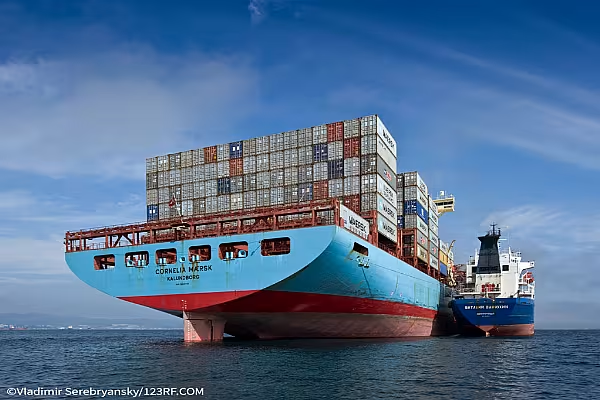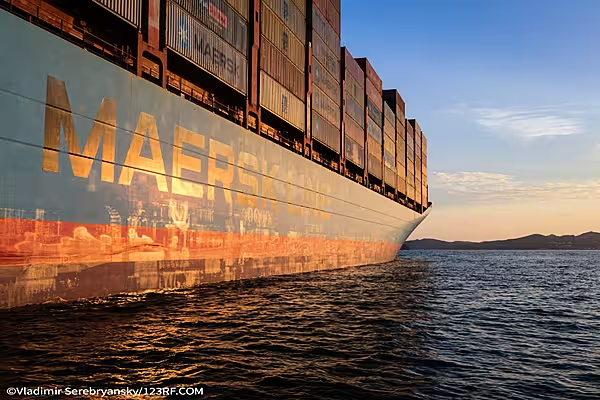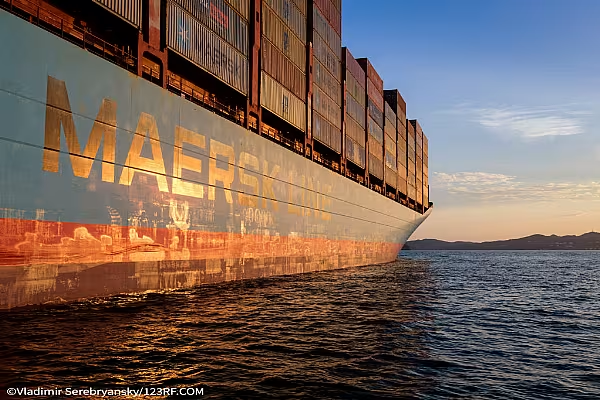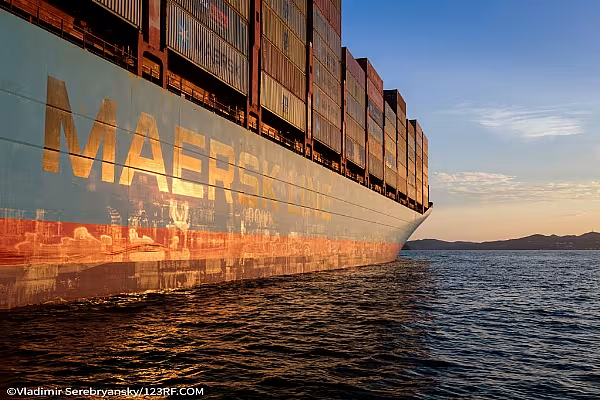Denmark's Maersk still plans to sail more than 30 container vessels through the Suez Canal and the Red Sea in the time ahead despite a weekend attack on one of its ships in the area, a company schedule said.
But Maersk also put on hold plans for some vessels to use the Red Sea route amid continued risk of attacks by Yemen's Houthi militants, saying it would announce the itinerary for each ship at a later time.
Sailings Halted
Maersk on Sunday paused all Red Sea sailings for 48 hours following attempts by the Iranian-backed Houthis to board its Maersk Hangzhou vessel, although U.S. military helicopters ultimately repelled the attack and killed 10 militants.
The Houthi group, which controls parts of Yemen after years of war, in November started attacking international ships traversing the Red Sea, saying it was a response to Israel's assault on the Hamas-ruled Gaza Strip.
Major shipping groups, including container giants Maersk and Hapag-Lloyd had last month stopped using Red Sea routes and the Suez Canal, rerouting instead to a longer journey around Africa via the Cape of Good Hope.
Military Operation
But Maersk on December 24 said it was preparing a return to the Red Sea, citing the deployment of a U.S.-led military operation to protect vessels.
The company has said that its top priority is the safety of crew, vessels and cargo, and that plans are updated "on a vessel-by-vessel basis", with some set to travel via Suez and others taking the longer route around Africa.
A detailed comparison of Maersk's latest itinerary with one released last week showed that the company has put on hold plans for at least 17 vessels to travel through the Red Sea. New plans would be announced at a later time, the company said.
The company did not say whether this meant that the vessels would be rerouted around the Cape of Good Hope.
Maersk did not immediately respond to a request for comment on its schedule.
Rival Hapag-Lloyd on Friday said it had decided to continue diverting its vessels away from Suez and the Red Sea for security reasons, adding a next assessment would be made on Tuesday.
Cape of Good Hope
According to Maersk, the company's alliance partner Mediterranean Shipping Company (MSC) continued to divert all its vessels via the Cape of Good Hope.
MSC did not immediately respond to a request for comment.
The Suez Canal is used by roughly one-third of global container ship cargo, and re-directing ships around the southern tip of Africa is expected to cost up to $1 million extra in fuel for every round trip between Asia and Northern Europe.














